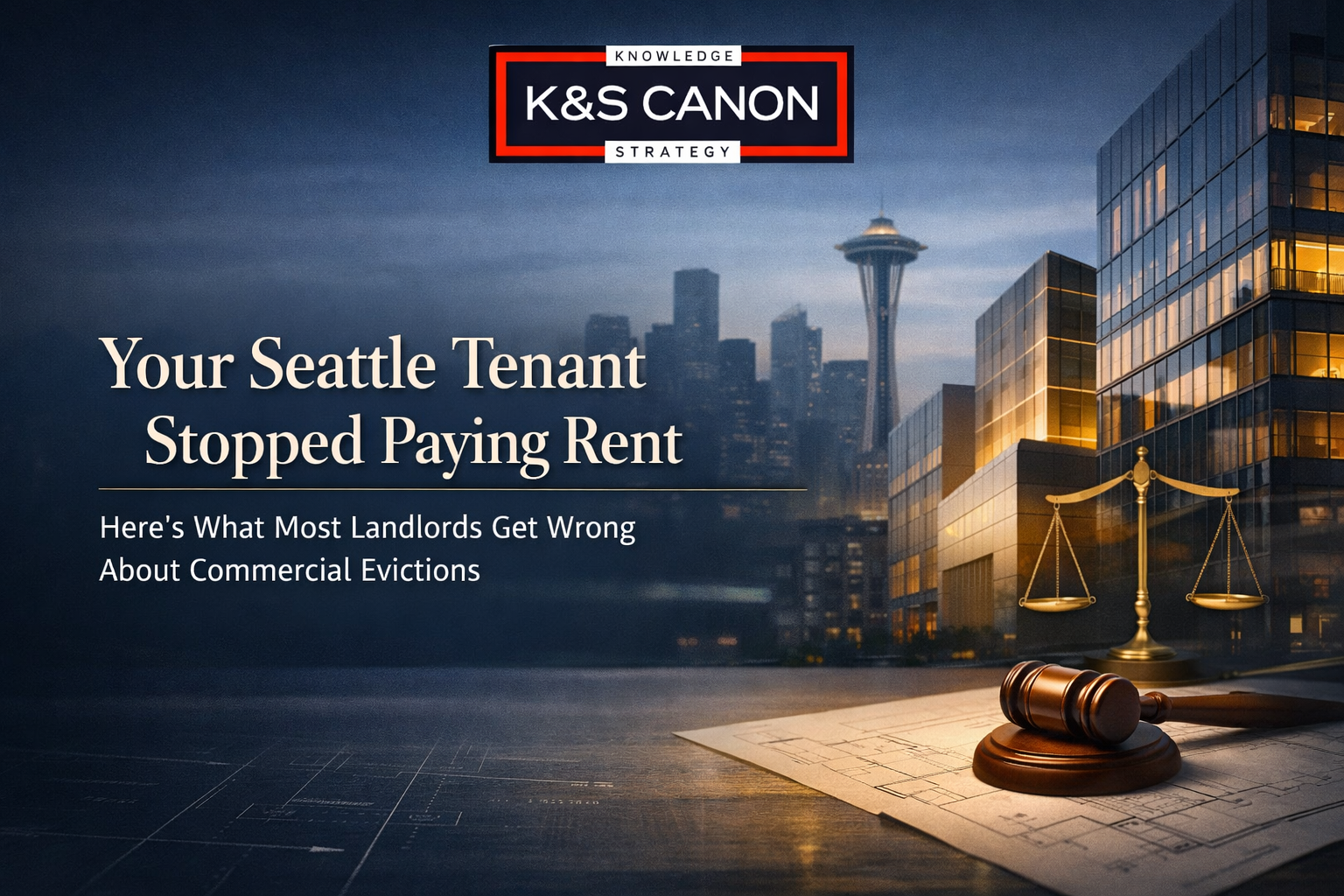Commercial Leasing: Office and Retail Considerations

Commercial lease agreements should address industry-specific needs. This guide examines key factors for office and retail businesses to consider when negotiating leases in Washington State.
Office Space Leasing
Office environments require lease terms that support workplace functionality. Technology infrastructure ranks among the most critical aspects to address in any office lease. Data cabling, server room requirements, and telecommunications access specifications should be clearly documented to prevent future disputes.
According to JLL Research, inadequate technology infrastructure correlates with productivity decreases averaging 14% in office-based businesses. Companies with clear specifications avoid costly upgrades later in the lease term.
Configuration Flexibility
As workplace designs evolve, leases need provisions for reasonable reconfiguration without excessive landlord approval processes. This flexibility becomes particularly valuable as business needs change over time.
Growth provisions also play a vital role in office leases. Options for expansion, first right of refusal on adjacent spaces, and termination flexibility (sometimes necessary if growth exceeds available space) can save businesses significant relocation costs.
Operational Requirements
Specific provisions for heating, cooling, and utility access during extended hours help businesses operating beyond typical 9-5 schedules. These provisions should include:
- Access hours for the building HVAC system
- Additional costs for after-hours operations
- Responsibility for supplemental systems if needed
Companies operating in Seattle's competitive office market benefit from lease terms tailored to their specific operational needs rather than accepting standard boilerplate terms. Consider and identify your specific company’s needs to include in your lease.
Retail Space Leasing
Retail success depends on both location quality and lease conditions that support business viability.
Customer Access Provisions
Operating hours clauses specify acceptable business hours, including seasonal variations and holiday schedules. Retail tenants should negotiate flexibility for extended hours during peak shopping seasons.
Co-tenancy provisions offer protections if anchor tenants leave, which may take the form of rent adjustments or early termination options. These clauses help preserve foot traffic necessary for retail success.
Financial Structures
Common area maintenance (CAM) formulas with caps on annual increases help retailers plan for predictable expenses. Without these caps, retail tenants may face unexpected cost spikes that affect profitability.
Percentage rent structures, where additional rent activates only after specific sales thresholds, can align landlord and tenant interests. These provisions reward both parties when the business performs well.
Competitive Positioning
Exclusivity rights prevent similar businesses from operating in the same complex, preserving customer base and market position. The strength of these clauses often determines a retail location's long-term viability.
Research from the International Council of Shopping Centers indicates that detailed co-tenancy clauses rank high among retailers' primary considerations when evaluating potential locations.
Washington State Legal Framework
Washington State commercial leases operate under specific legal frameworks that tenants and landlords should note. Commercial lease laws are governed by Washington Code Chapter 62A.2A (Uniform Commercial Code—Leases) according to the Washington State Legislature.
Washington State has eliminated notary requirements for commercial leases, which streamlines the execution process. This change makes electronic and remote signings much more practical for all parties.
Seattle has implemented additional protections, including limitations on commercial leases that cap personal guarantees to the first two years of base rent. These provisions aim to support small businesses in the competitive urban market.
Unlike with residential leases, commercial tenant rights primarily stem from the lease agreement itself rather than statutory protections. This makes thorough lease review especially important for all parties involved.
Contact K&S Canon for Your Commercial Lease Legal Needs
Attorney guidance when negotiating industry-specific commercial leases can help secure favorable terms aligned with your business requirements. Contact K&S Canon today to discuss how their legal services can support your commercial leasing needs.
Disclaimer: This blog post is for informational purposes only and does not constitute legal advice. Commercial lease regulations may vary by location and change over time. Consult with a qualified attorney for guidance specific to your situation.




